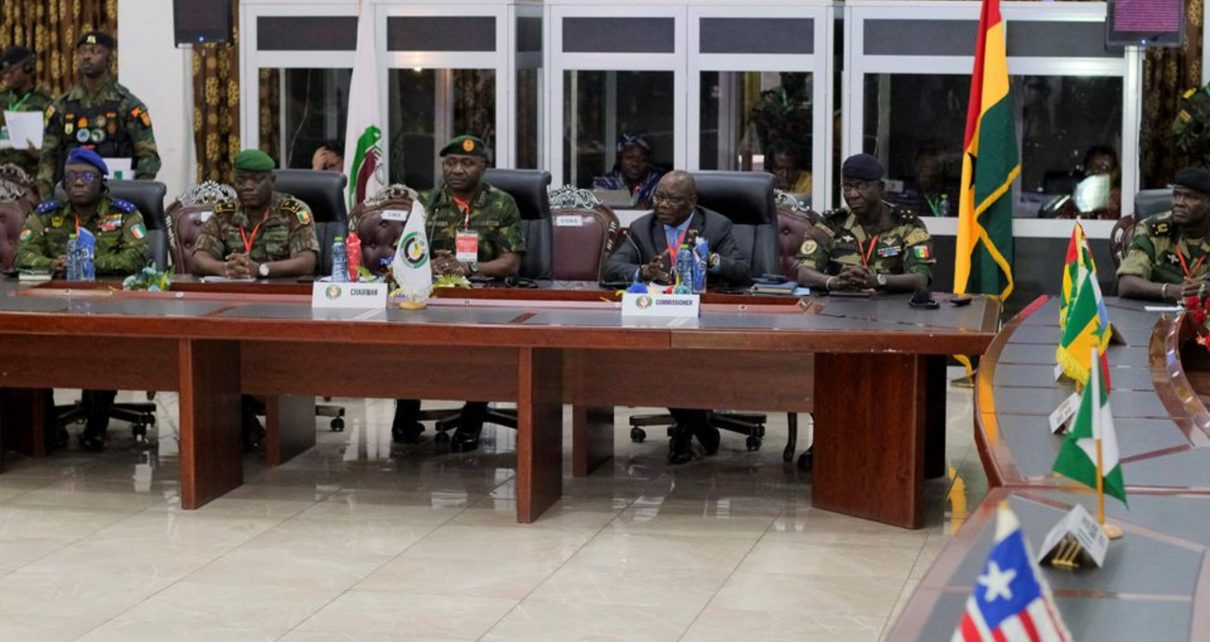In a decisive move, West Africa’s principal regional coalition announced on Friday that it has established a concealed “D-Day” for a prospective military intervention in Niger, should diplomatic endeavours falter. The regional organisation affirmed that it will not engage in unending discussions with the intransigent junta, underscoring its commitment to restoring democratic order.
This declaration materialised following a two-day gathering of West African military leaders in Accra, the capital of Ghana. During the summit, these commanders delved into the tactical and logistical aspects of a potential military operation in Niger. The Economic Community of West African States (ECOWAS) maintained that military action would be the last recourse.
“We stand ready for action once the directive is given,” stated Abdel-Fatau Musah, the ECOWAS Commissioner for Political Affairs, Peace, and Security, during the conclusion of the meeting. “The chosen D-Day is known to us, though not disclosed.”
Musah emphasised that the preference remains for a peaceful resolution. “We are currently organising a mediation mission into the nation, so we have not shut the door to dialogue… However, we won’t be ensnared in prolonged negotiations.”
The junta did not immediately respond to these developments.
On July 26, military officers overthrew Niger’s President, Mohamed Bazoum, and their refusal to heed appeals from the United Nations, ECOWAS, and other organisations to reinstate him prompted ECOWAS to set up a standby military force.
“The requirements for the intervention have already been established and refined,” Musah disclosed, though he declined to disclose troop numbers and other strategic intricacies.
Except for Mali, Burkina Faso, Guinea, and Cape Verde—states currently under military governance—most of ECOWAS’s 15 member countries are prepared to contribute to the joint intervention force.
In this instance, ECOWAS has exhibited a more resolute stance compared to previous episodes of political upheaval in the region, characterised by seven coups within three years. The bloc’s credibility is on the line, as it had previously vowed not to tolerate further such coups.
Musah articulated, “The coup in Niger exceeds the region’s tolerance threshold; hence, we are halting it. We’re drawing the line in the sand.”
A prospective intervention could exacerbate the turmoil in the already-struggling Sahel region of West Africa, which confronts a protracted Islamist insurgency and a deepening humanitarian crisis.
Niger’s significance transcends the region, driven by its uranium and oil reserves, and its role as a nucleus for foreign forces engaged in combating insurgents affiliated with Al Qaeda and the Islamic State.
Meanwhile, diplomatic initiatives are ongoing. Leonardo Santos Simao, the United Nations special envoy for West Africa and the Sahel, engaged in talks with Niger’s junta Prime Minister Ali Mahamane Lamine Zeine on Friday. In a broadcast on the nation’s state television, Simao articulated his intent to “understand the junta’s perspective and collaboratively explore ways to swiftly restore constitutional normalcy and legality to the country. We firmly believe that dialogue can yield positive outcomes.”


